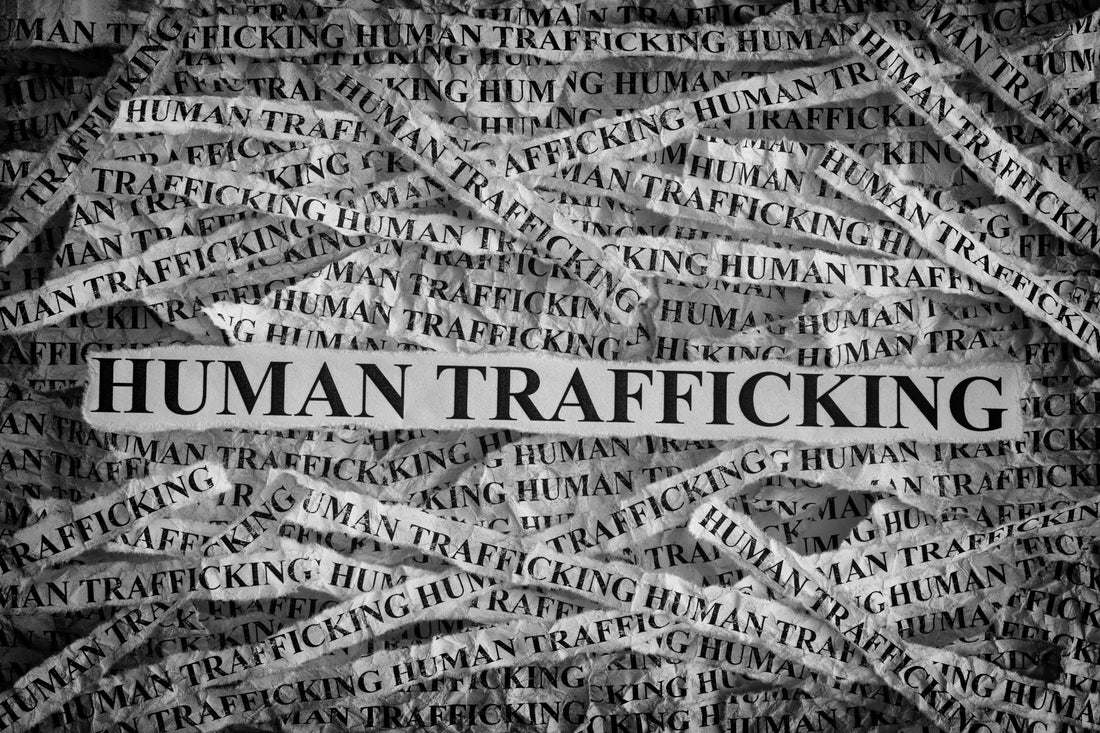
The Fight Against Human Trafficking
Share
Human trafficking and modern-day slavery are umbrella terms – often used interchangeably – that refers to the exploitation of individuals through threat or use of force, coercion, abduction, fraud, and/or deception. 40 million people annually are impacted by one of these types of trafficking globally. It includes the practices of forced labor, debt bondage, domestic servitude, forced marriage, sex trafficking, child sex trafficking, and the recruitment and use of child soldiers, among others. The most common forms of exploitation are forced labor, which, according to the International Labor Organization, impacts 24.9 million people a year – 16 million in private sector exploitation, 4 million in state-sanctioned forced labor, and 4.8 million in sex trafficking – and forced marriage, which enslaves 15.4 million individuals. The ILO estimates that forced labor generates $150 billion in illegal profits each year.
The two most commonly known forms of human trafficking are sexual exploitation and forced labor. Any instance in which an individual engages in a commercial sex act (such as prostitution) as the result of force, fraud, or coercion, is considered sex trafficking. Sex trafficking also includes the commercial sexual exploitation of children or minors (commonly abbreviated as CSEC). Forced labor can occur within any form of labor or services, and it is defined as the subjection of individuals to involuntary servitude, peonage, debt bondage, or slavery. In all instances of forced labor, the individual works against his or her will, for little or no pay, and/or under the threat of some sort of punishment.
(From HumanTraffickingSearch.org)
As a verified member of the Fair Trade Federation, has 9 principles we are vetted to and agree to follow. Many of them are to ensure that the artisans we work with are not forced into labor, are paid fairly, that children are not used for labor. This is a huge problem in marginalized communities.

One of our ladies Gloria shares about her story here and says she can now hold her head up high when she walks into town because she no longer has to prostitute herself to earn income.
Human Trafficking is a significant problem around the world but also here in the US. I read the story of Shari Ho recently about how her parents sold her into slavery in Taiwan at the age of 7 and how she was brought here to the US by the people the same family that forced into slavery and she was a slave here. Someone took notice and rescued her but she endured years of abuse. You can find her story on amazon.
These issues are not uncommon and we all need more awareness. You never know who is a victim right in your neighborhood.
Paying attention to things like who made your clothes or buying fair trade chocolate or coffee are ways you can help ensure that child labor, slave labor or forced labor is reduced.
Learning more about how human trafficking and what you can do to see it, end it and prevent it will be the focus of the January 30th online Leaders in the Fight Against Human Trafficking event which will be held online.

We will be discussing human trafficking and this event with the organizers on our Tea Time Tuesday show. Be sure to join us at 6:30pm on Facebook and YouTube. Join us.

